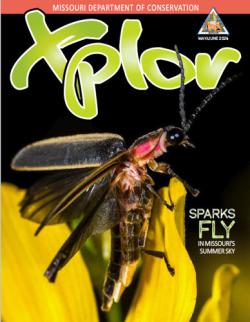
Xplor reconnects kids to nature and helps them find adventure in their own backyard. Free to residents of Missouri.


































Stay in Touch with MDC news, newsletters, events, and manage your subscription

Xplor reconnects kids to nature and helps them find adventure in their own backyard. Free to residents of Missouri.

A monthly publication about conservation in Missouri. Started in 1938, the printed magazine is free to residents of Missouri.
KANSAS CITY, Mo. - A virus caused the recent die-off of common carp at Blue Springs Lake said Jake Allman, fishery biologist for the Missouri Department of Conservation (MDC). The virus cannot be transmitted to humans.
Laboratory tests determined that the koi herpesvirus (KHV) killed the carp, Allman said. KHV is named for koi, a fish commonly kept in aquariums and aquaculture. Koi are ornamental varieties of common carp that have been bred for varying colors and fin shapes. KHV most commonly occurs in hatchery operations with large numbers of fish.
The virus affects only the common carp species, but goldfish can be carriers without showing symptoms of the virus. Carp are an exotic, invasive species. Popular native fish such as largemouth bass, bluegill, crappie and catfish should actually benefit from the die-off due to less competition for food and less habitat destruction by carp.
The fish kill at the lake killed approximately 16,000 common carp, about 75 percent of the carp in the lake, Allman said.
The virus has a short incubation period, spreads rapidly from fish to fish, but is only lethal to common carp. There is no treatment for this disease. The virus is fairly well established in North America. Similar outbreaks have occurred in Arizona, California, Indiana, Michigan, New York and Ontario.
The high number of carp in Blue Springs Lake probably played a part in the severity of the outbreak, Allman said. The outbreaks typically occur when water temperatures are 72 to 78 degrees Fahrenheit. Water temperatures were ideal for this outbreak. Increasing water temperatures combined with the reduced number of carp suggests the outbreak should be over.
The virus could have been introduced by someone dumping unwanted bait, koi or goldfish into the lake, Allman said. Disease and invasive species of aquatic plants and animals are often spread by people dumping live bait and unwanted aquarium fish and plants into nearby waters. This practice is illegal and can have many negative impacts on native ecosystems. People should dispose of unused bait on dry ground.
Allman added that Blue Springs Lake remains a great local destination for boating, swimming and fishing.